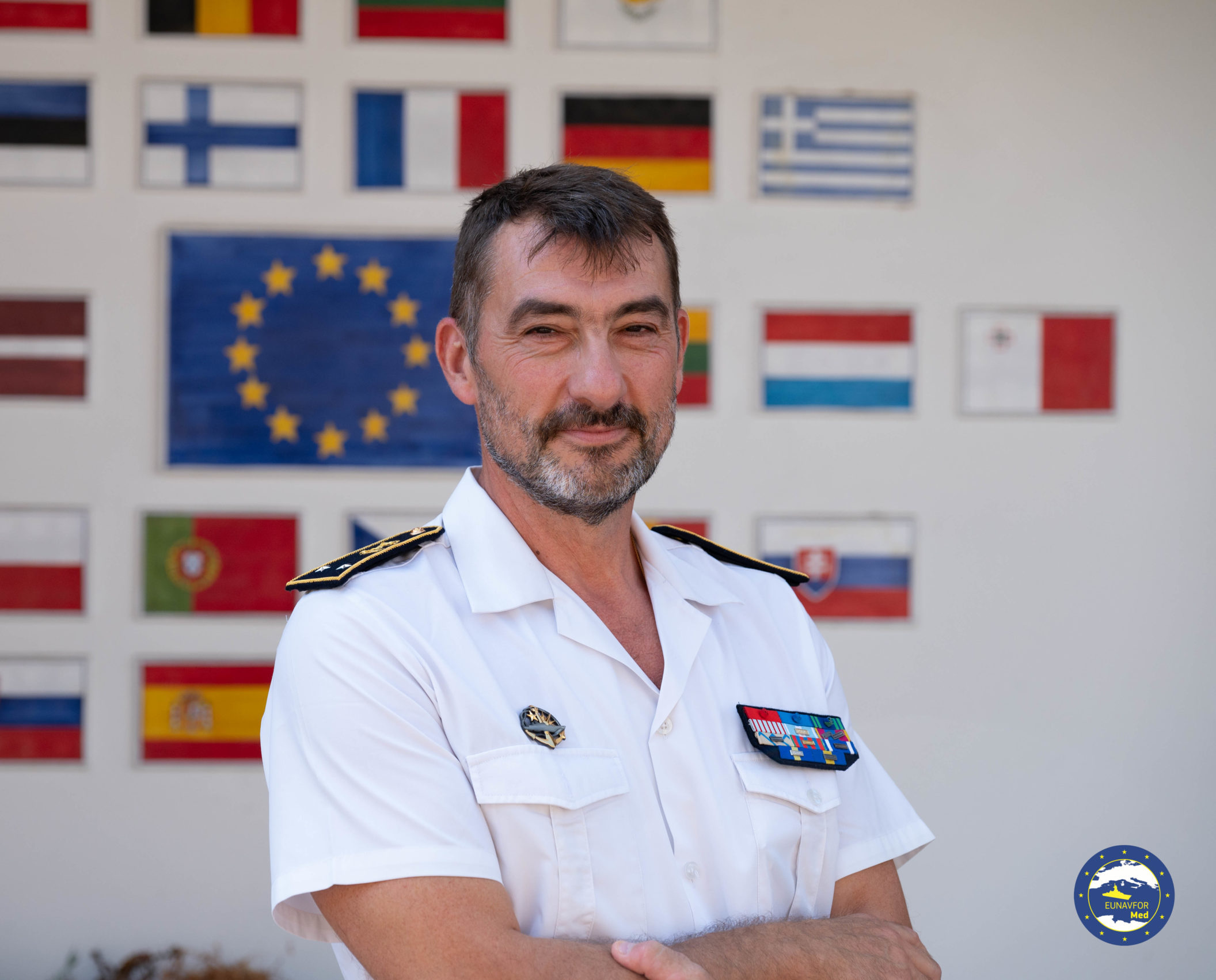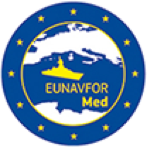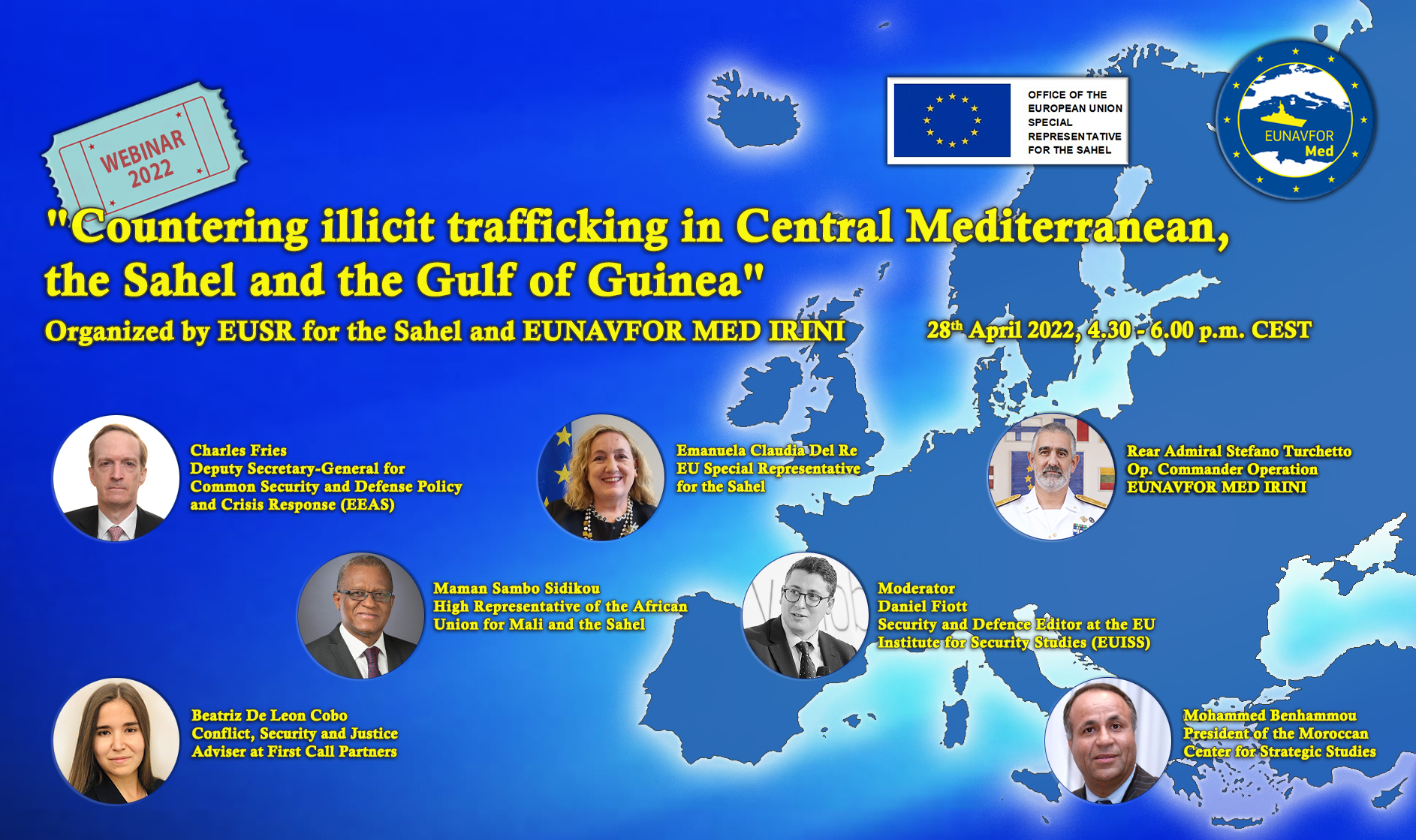Interview to the new Deputy Operation Commander, Rear-Admiral Guillaume Fontarensky

On 31 July 2023, at the Operation Headquarters of EUNAVFORMED Irini in Rome, took place the ceremony for the change of Deputy Operation Commander. Rear Admiral Guillaume Fontarensky, took over from Rear Admiral Jean Jourdain de Muizon, both admirals are from the French Navy.
Rear-Admiral Guillaume Fontarensky, was born in Toulon, France, graduated from the French Naval Academy in 1993 and specialized as gunnery officer, anti-surface and anti-air warfare.
Admiral, let’s start with you. You were born in Toulon, the most important French Naval Base in the Mediterranean Sea. During your career you have returned there several times, what is your bond with the City?
My father was also a sailor, like me, and he went to Toulon for military school. I was born there only by chance but then it became a city where I did the bulk of my career.
After the Naval Academy, I was successively assigned on many ships home-based in Toulon. From 2010 to 2012, I was in charge of the handling of day to day operations in the French Naval Operations Centre for the Mediterranean Sea, before becoming the chief of the same centre from 2017 to 2019. In 2014 I took head of the surface ships training department. From July 2019 to August 2022, I served as deputy commander of the admiral commanding all French surface ships then from 2022 to 2023 I was assigned as chief of staff of the French rapid reaction headquarters whose purpose is to provide staffs capable to command a force at sea.
After all these experiences, I became a “Toulonnais” by adoption.
How do you feel with this new appointment and what is the difference between a command at sea and one ashore?
It is not my first time, as mentioned. From 2019 to 2023 I was in Toulon on land command, for the French Navy.
I believe there are an age and a time for everything. Clearly sometimes I am nostalgic of action and adventure. But that time has gone and new generations took over.
Still, with my role in Operation Irini I feel I contribute to a greater goal than personal single experiences, or successes. When in command at sea, senior officers have to focus on the tactical situation, solving the daily issues. Here at the OHQ I work side by side with the Operation Commander, Rear Admiral Turchetto, at an higher level. The strategic decisions taken at the Operation Headquarters (OHQ) can have a real impact in limiting the propagation of arms in Libya. This can contribute building a more stable State in North Africa, to the benefit of the whole region and the EU itself.
Let us turn then to Operation Irini, a European mission, supported by 23 participating nations providing personnel and resources. How do you find yourself in this multinational context?
We sailors are by nature ambassadors of our Countries to the world. Our ships sailed in all seas for centuries and, both in port and at sea, sailors are constantly interacting with the foreign citizens and other sailors of allied and partner navies. Nowadays more than ever, we have to get used to operating in an international context like Operation IRINI.
As an officer, are there difficulties in managing an operation composed of people who speak different languages and have different cultures?
This is not the first time I have worked in an international context. In the 90s I participated to the Maritime Operations bringing peace to former Yugoslavia and I took part in the deployment of a French Carrier Group in the Arabian Sea within the framework of the Afghanistan multinational campaign. From July 2009 to July 2010, I commanded the frigate FS Nivôse, based in the Reunion Island in the Indian Ocean and for four months we joined the European anti-piracy operation Atalanta, off the Somali coasts. From July 2012 to July 2014, I commanded the anti-submarine warfare destroyer FS Montcalm also deployed for several months in the Indian Ocean in the anti-terrorism operation Enduring Freedom.
In all these deployments, the common used language was English, as it is in Operation Irini , so the language issue is easily resolved. Nowadays the language is not an issue anymore, nor for the Navies nor for the other Services. It is actually worth to recall that Irini is not only a multinational but also a Joint Operation including personnel from the Army, the Air Force, Coast Guard and Italian Carabinieri.
In order to work well, the most important thing is to always keep the objective of the mission in mind.
In your opinion, could Operation Irini be seen as the embryo of a European defense?
Operation Irini is certainly an important mission but it is not the first European defense experience. Among those in which I have personally participated are Operation Atalanta, designed to combat piracy in the Gulf of Aden, and Operation Althea, officially known as the European Union Force in Bosnia and Herzegovina (EUFOR).
Like Althea, Irini is also an operation aimed to stabilize a crisis situation on Europe’s doorstep. It is addressing the threats to international security, represented by arms trafficking in Libya and other illicit activities, such as human and oil smuggling from Libya. The primary objective is to Counter Illicit Arms Trafficking (CIAT) in order to support the UN established Embargo protecting the current, weak, ceasefire in the North African Country.
Irini is clearly one further step toward the maturing of a greater European awareness of defense. However, European defense is a larger concept and will not be the result of a single military Operation, or the sum of several. Political discussions in Brussel are ongoing on the strategic posture of Europe, the outcome of which will show the way forward.
Could we see the Mediterranean as a strategic area and, possibly, as the birthplace of European defense?
The Mediterranean Sea is an area of major geopolitical importance, with multiple latent tensions. It is a transit area for goods and people, and a place of economic and military competition. This is why most of the countries, not only those overlooking the Mediterranean, have a significant military presence there. There is therefore no doubt that the Mediterranean Sea is a strategic area of interest for Europe, especially because it limits our southern border.
I don’t think the Mediterranean, with IRINI, could be seen as the cradle of European defense. European defense goes well beyond than the conduct of one or more military operations. Moreover, Irini is not taking place in the whole of the Mediterranean, but only in the waters off the coast of Libya, its objectives established by the EU mandate are specific and mainly about the conduct of CIAT operations.



